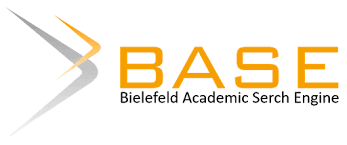PENGARUH MODEL PEMBELAJARAN TREFFINGER TERHADAP KEMAMPUAN BERPIKIR KREATIF DENGAN MENGONTROL ADVERSITY QUOTIENT
Keywords:
Treffinger Learning Model, Adversity Quotient, Creative ThinkingAbilityAbstract
The purpose of this study was to determine differences in creative thinking skills between students who took the Treffinger learning model and students who took conventional learning models by controlling the adversity quotient of semester V students of mathematics education study program FPMIPA IKIP PGRI Bali in the 2019/2020 Academic Year.This type of research used is quasi-experimental (Quasi Experimental) with Non Equivalent Control Group Design. The population in this study were all fifth semester students from 2 classes of 26 students. Obtained as a sample class is the VA class as an experimental group and VB class as a control group, with simple random sampling technique. The instrument used in this study was a questionnaire to collect adversity quotient data and a description test to collect data on students' creative thinking abilities. Data analysis used t-test and one-way covariance analysis (ANAKOVA). The results showed that: 1) the first hypothesis with the t-test that there were differences in the ability to think creatively between students who took the treffinger learning model and students who followed the conventional learning model, 2) the second hypothesis with ANAKOVA one way that there were differences creative thinking skills between students who take treffinger learning models with students who follow conventional learning models after controlling adversity quotient, so it can be concluded there is an influence of treffinger learning models on creative thinking abilities by controlling adversity quotient of semester V students of mathematics education study program FPMIPA IKIP PGRI Bali.
Downloads
References
Andiyana, M.A., dkk. 2018. Analisis Kemampuan Berpikir Kreatif Matematis Siswa SMP Pada Materi Bangun Ruang. Jurnal Pembelajaran Matematika Inovatif. Vol. 1, No. 3, 239-248. [Online]. Tersedia:
https://journal.ikipsiliwangi.ac.id/index.php/jpmi/article/view/578
Januari 2020]
Arikunto, S. 2013. Dasar-Dasar Evaluasi Pendidikan. Jakarta: PT Bumi Aksara.
Baas, D., Vermeulen, M., Castelijns, J., Martens, R., & Segers, M. 2019. Portfolios as A Tool For AfL and Student Motivation: Are They Related?. Assessment in Education: Principles, Policy & Practice. 1-19. [Online]. Tersedia: https://doi.org/10.1080/0969594X.2019.1653824
Februari 2020]
Candiasa, I.M. 2010. Statistik Multivariat Disertai Aplikasi SPSS. Singaraja: Unit Penerbitan Universitas Pendidikan Ganesha.
Fathoni, H. 2019. Pengaruh Model Pembelajaran Treffinger Terhadap Hasil Belajar Matematika Siswa Kelas VII-B SMP Negeri 2 Patianrowo. Edu Math Jurnal Program Studi Pendidikan Matematika. Vol. 7, No. 1, 28-34. [Online]. Tersedia:
https://ejournal.stkipjb.ac.id/index.php/math/article/view/1018
Mei 2019]
Hidayat, W., dan Sariningsih, R. 2018. Kemampuan Pemecahan Masalah Matematis Dan Adversity Quotient Siswa SMP Melalui Pembelajaran Open Ended. Jurnal Nasional Pendidikan Matematika. Vol. 2, No. 1, 109-118. [Online]. Tersedia:
http://jurnal.unswagati.ac.id/index.php/JNPM/article/view/1027
Mei 2019]
Huda, M. 2013. Model-Model Pengajaran dan Pembelajaran. Yogyakarta: Pustaka Belajar.
Kemdikbud. 2019. Hasil PISA Indonesia 2018: Akses Makin Meluas, Saatnya Tingkatkan Kualitas. [Online]. Tersedia: https://www.kemdikbud.go.id/ [15 Februari 2020]
Koyan, I.W. 2012. Statistik Pendidikan Teknik Analisis Data Kuantitatif. Singaraja: Universitas Pendidikan Ganesha Press.
Maharani, R.K. 2018. Pengaruh Model Pembelajaran Treffinger Terhadap Kemampuan Berpikir Kreatif Pelajaran Matematika Materi Bangun Ruang. Jurnal Penelitian Pendidikan Dosen Sekolah Dasar. Vol. 6, No. 4, 506-515. [Online]. Tersedia:
http://jurnalmahasiswa.unesa.ac.id/index.php/jurnalpenelitianpgsd/article/view/23615 [24 Mei 2019]
Marselina, K.T. dan Kristiantari, R. 2019. Pengaruh Pendekatan Pembelajaran Matematika Realistik Berbasis Portofolio Terhadap Kompetensi Pengetahuan Matematika. Journal of Education Technology. Vol. 3, No. 2, 81-87. [Online]. Tersedia:
https://ejournal.undiksha.ac.id/index.php/JET/article/view/21708
Februari 2020]
Matore, M.E.E.M., Khairani, A.Z., & Razak, N.A. 2015. The Influence of AQ on The Academic Achievement Among Malaysian Polytechnic Students. International Education Studies. Vol. 8, No. 6, 69-74. [Online]. Tersedia:
http://www.ccsenet.org/journal/index.php/ies/article/view/44873
Februari 2020]
Muslich, M. 2007. Kurikulum Tingkat Satuan Pendidikan. Jakarta: PT. Bumi Aksara.
Pangma, R., Tayraukham, S., dan Nuangchalerm, P. 2009. Causal Factors Influencing Adversity Quotient Of Twelfth Grade and Third-Year Vocational Students. Journal of Social Science. Vol. 5, No. 4, 466-470. [Online]. Tersedia: http://scipub.org/jss/article/view/11241
Februari 2020]
Puspendik. 2019. Memahami AKSI Sebagai Sistem Penilaian Pendidikan. [Online] Tersedia: https://puspendik.kemdikbud.go.id/ [20 Januari 2020]
Risma, Devi. 2016. Pemetaan Adversity Quotient Mahasiswa Jurusan Ilmu Pendidikan Fakultas Kedosenan Dan Ilmu Pendidikan Universitas Riau. Educhild. Vol 5, No. 2, 81-88. [Online]. Tersedia:
https://educhild.ejournal.unri.ac.id/index.php/JPSBE/article/view/3824
Juni 2019]
Saiselar, B.G., Palinussa, A., dan Tamalene, H. 2019. Komparasi Hasil Belajar Siswa Menggunakan Model Pembelajaran Kooperatif Tipe TAI dan Model Pembelajaran Konvensional Pada Materi Integral. Science Map Journal. Vol. 1, No. 1, 29-36. [Online]. Tersedia:
https://ojs3.unpatti.ac.id/index.php/sciencemap/article/view/984
Juni 2019]
Sugiyono. 2017. Metode Penelitian Kuantitatif, Kualitatif, dan R&D. Bandung: Alfabeta.
Sunita, N.W. 2019. Pemahaman Konsep Matematika Melalui Model Pembelajaran Means-Ends Analysis (Mea) Dengan Mengontrol Adversity Quotient. Prosiding Senama PGRI. Vol.1, 60-70. [Online]. Tersedia:
https://ojs.ikippgribali.ac.id/index.php/senama/article/view/329 [24 Juni 2020]
Downloads
Published
How to Cite
Issue
Section
License
Copyright (c) 2020 LPPM Universitas Mahadewa Indonesia

This work is licensed under a Creative Commons Attribution-NonCommercial-ShareAlike 4.0 International License.
Hak cipta mencakup hak eksklusif untuk mereproduksi dan mengirimkan artikel ini dalam semua bentuk dan media, termasuk mencetak ulang, memotret, mikrofilm dan reproduksi serupa lainnya, serta terjemahannya. Reproduksi dari bagian manapun dari jurnal ini, penyimpanannya di database dan transmisinya dengan bentuk atau media apa pun, seperti salinan elektronik, elektrostatik dan mekanis, fotokopi, rekaman, media magnetik, dan lain-lain, akan diizinkan hanya dengan izin tertulis dari penerbit jurnal.






1_(1).jpg)











